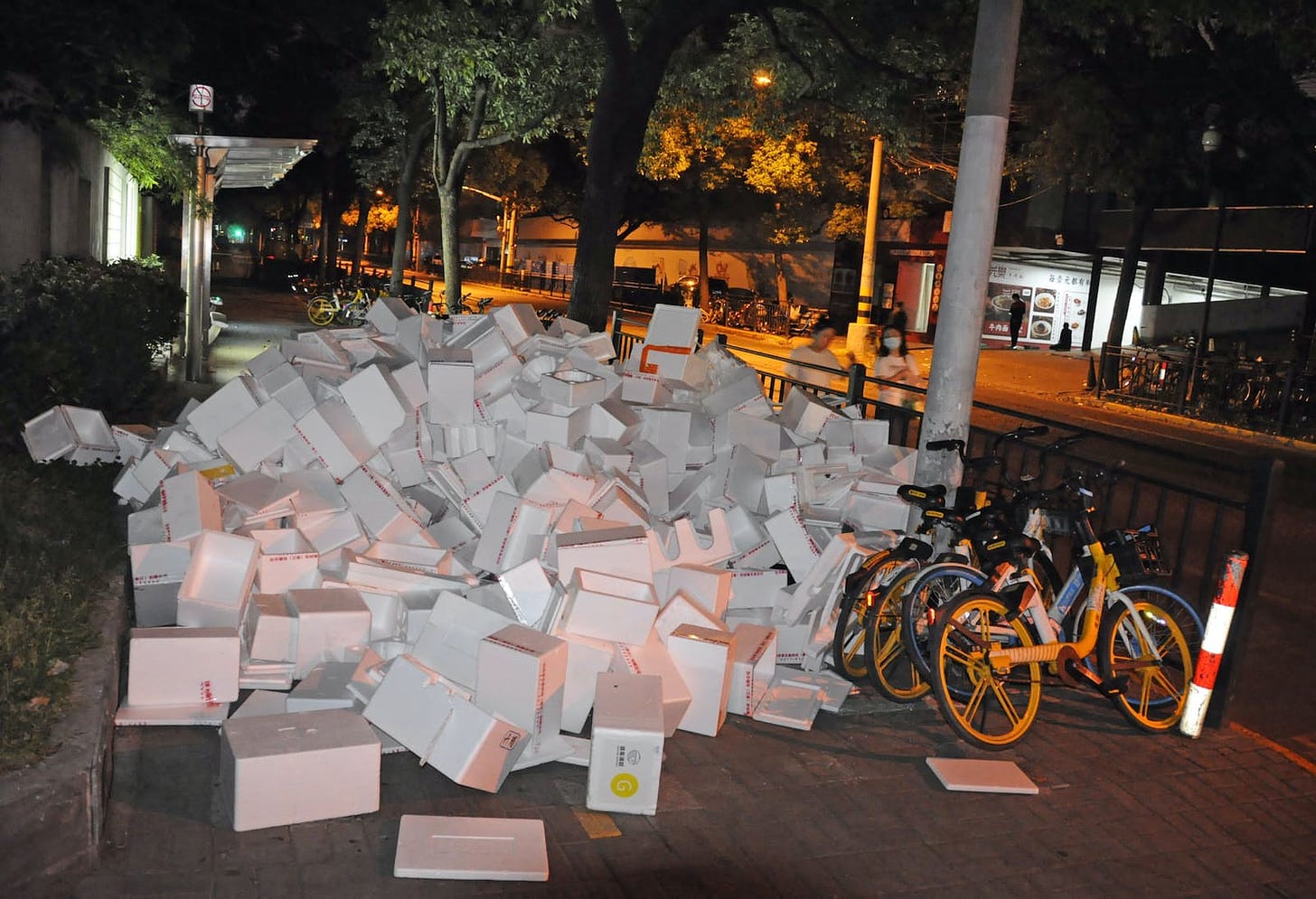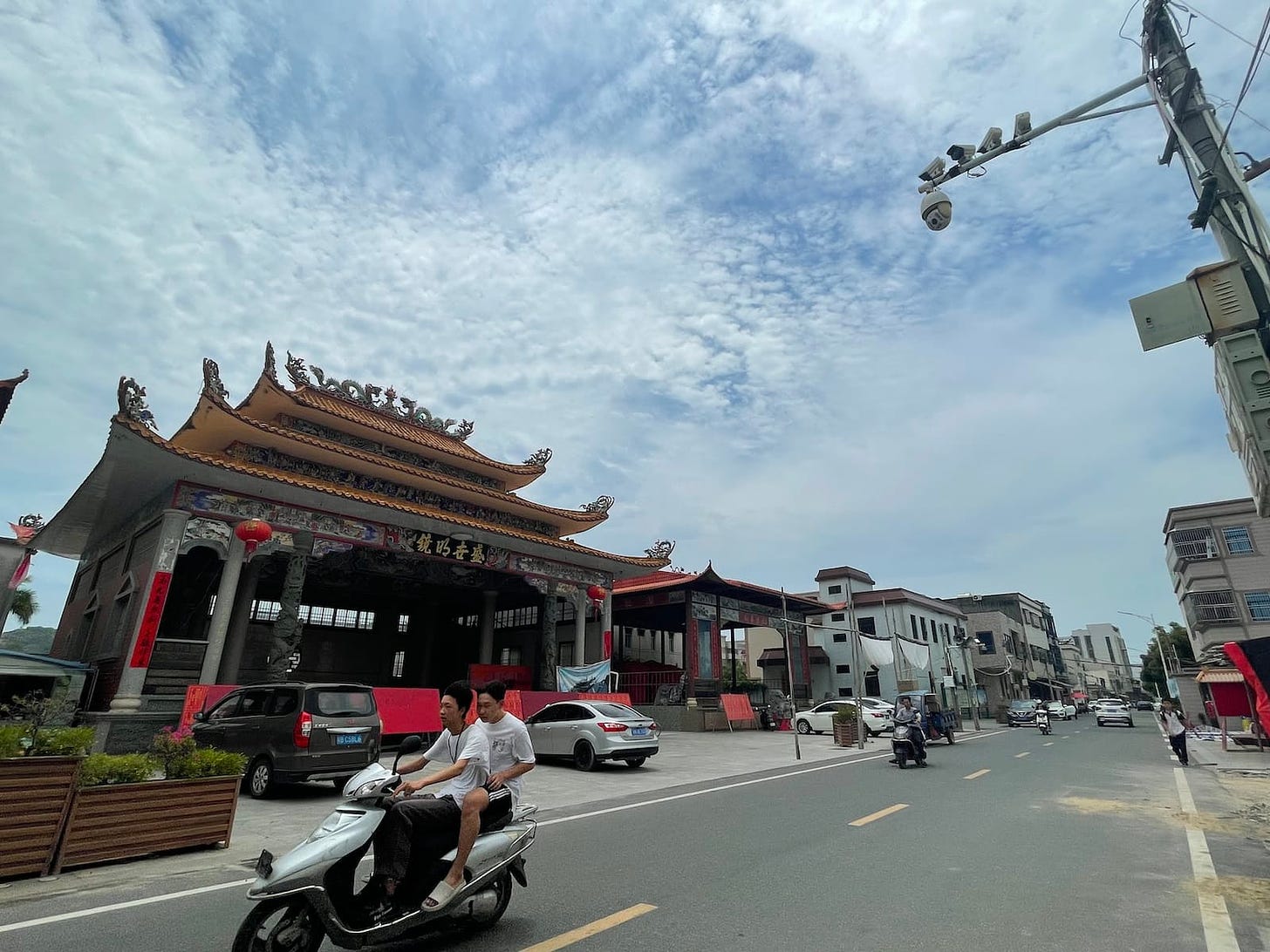China spends more on population control than on defence
Since April, multiple banks in Henan have refused to allow withdrawals, resulting in a flood of depositor protests.

June, it was revealed in the central Chinese province of Henan that local authorities had used an anti-COVID app to track the movements of over 1,300 people. Yang, from Shandong Province, is one of them.
Yang arrived in Zhengzhou, the capital of Henan, on the morning of June 13 on a night train. He couldn't believe it when his "health code" smartphone app turned red as the train approached the station.
Authorities in China track citizens' movements. If they are suspected of having come into contact with someone who has tested positive for COVID-19, their health code apps turn red, and their movements are severely restricted.
Yang had no recollection of ever coming into contact with an infected person. But when he arrived at the station, he was met with another surprise: officials told him he had to leave Henan and took him away.
Yang was in Henan to withdraw a total of 230,000 yuan ($34,000) from a local bank.
Since April, multiple banks in Henan have refused to allow withdrawals, resulting in a flood of depositor protests.
Local authorities feared that if the demonstrations spread, the central government would see it as a failure.
They rushed to conceal the inconvenient truth under the guise of combating COVID-19.
China's zero-COVID policy, which aims to contain the virus through strict social controls, has shocked the world.
Local governments across the country are going too far in tightening their stranglehold on ordinary people as President Xi Jinping's government pursues its policy of tolerating no infections.
On April 14, a video of a scuffle between police and residents of a housing complex protesting an eviction notice in Shanghai went viral on Chinese social media.
As residents yelled for police to leave the housing complex, cops in white protective suits rushed in to detain them. Screams were heard.
Shanghai has been closed since the end of March, with 25 million residents barred from leaving their homes. Some people were even evicted from their homes.
One after another, live videos of citizens suffering from food shortages or police behaving violently were posted on social media, leaving authorities scrambling to delete them.

However, China's leadership under Xi did not falter. It pledged in May to firmly oppose any words or actions that question or reject the country's COVID-control policy, and it began to expand its control over the internet.
Once a state begins to move strongly in one direction, it cannot easily reverse its course.
According to a joint US-China study published in the journal Nature Medicine, easing China's zero-COVID policy will be disastrous because the effectiveness of widely used Chinese-made vaccines is low.
The study specifically warned that if China relaxes the policy, the number of people experiencing symptoms could rise to 112 million, with 1.6 million dying within six months.
The prestige of the Xi government is at stake. It cannot change its COVID policy because it cannot rely on vaccines manufactured in Western countries.
Xi launched a "zero tolerance" anti-corruption campaign after becoming the Communist Party's general secretary in 2012. The trend of trying to do everything perfectly has now spread to everything.
The Shanghai municipal government's public security bureau has a long list of accomplishments. According to the bureau, the arrest rate for burglaries such as sneak thefts was 96% in 2021, and pickpocketing on subway trains was 100%.
By 2021, the bureau planned to have installed street cameras in all residential and commercial areas, broadening the scope of its surveillance system.
The number of robbery cases in 2020 was 72, a 98% decrease from the peak in 2000. It is becoming increasingly likely that the figure will fall to zero.
Although technology has brought China closer to the ideal of a crime-free society, the cost is not insignificant.
In 2020, China's "public safety" spending, which is used to maintain public order and control speech at home, will total $210 billion. In ten years, the amount more than doubled.
China's national defence spending is rapidly increasing and approaching that of the United States. However, China's public safety spending in 2020 was up to 7% higher than its national defence spending.
Not only that, but The public's resentment is growing as the crackdown becomes increasingly harsh.

Since late June, a slang term mocking police, literally "a falling young man," has been trending on social media in China.
It all started when a woman in her 40s and her father got into an argument with a male police officer in Dandong, Liaoning Province, northeastern China.
On their way to the hospital, the woman and her father were stopped by a police officer.
The officer stated that it was because of the colour of her health code. An argument ensued, and the woman was detained for ten days on suspicion of obstructing justice.
A video mocking the police officer who pretended to fall during the confrontation has gone viral.
The zero-COVID policy has increased public distrust of authorities, and the fruits of people's frustration are being spread on the internet one after the other.
Only by allowing different points of view to clash can a vibrant and technologically innovative society be created.
The more China tries to contain all opposing viewpoints and controls everything, the further it will drift from the rest of the world.
When the public reaction to this occurs, "Great China" will be diminished.
(Source: Nikkei Asia)


